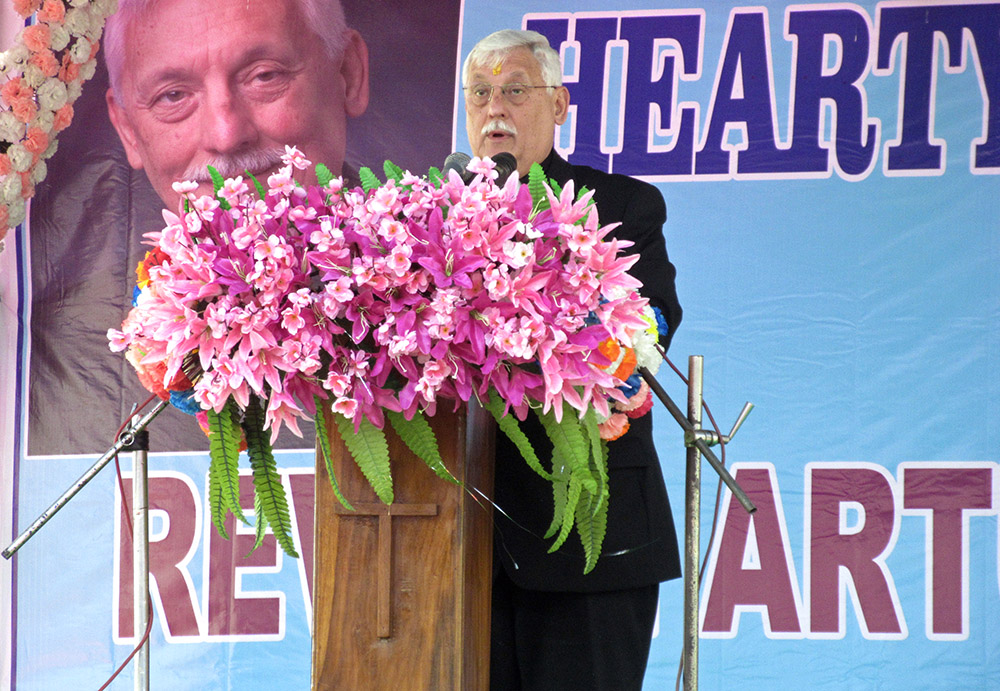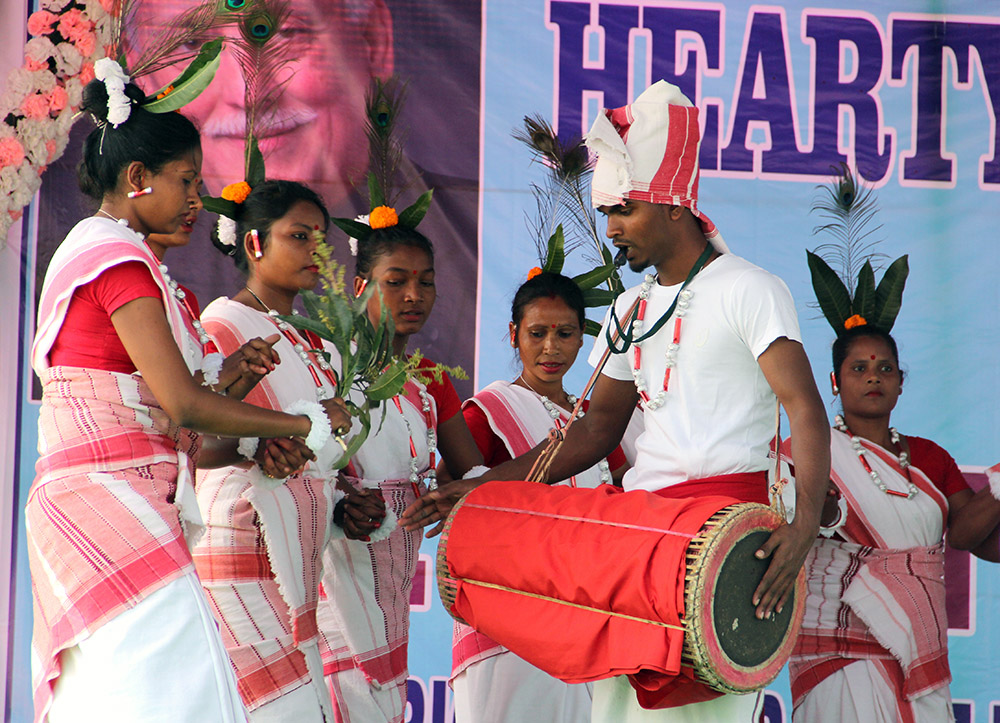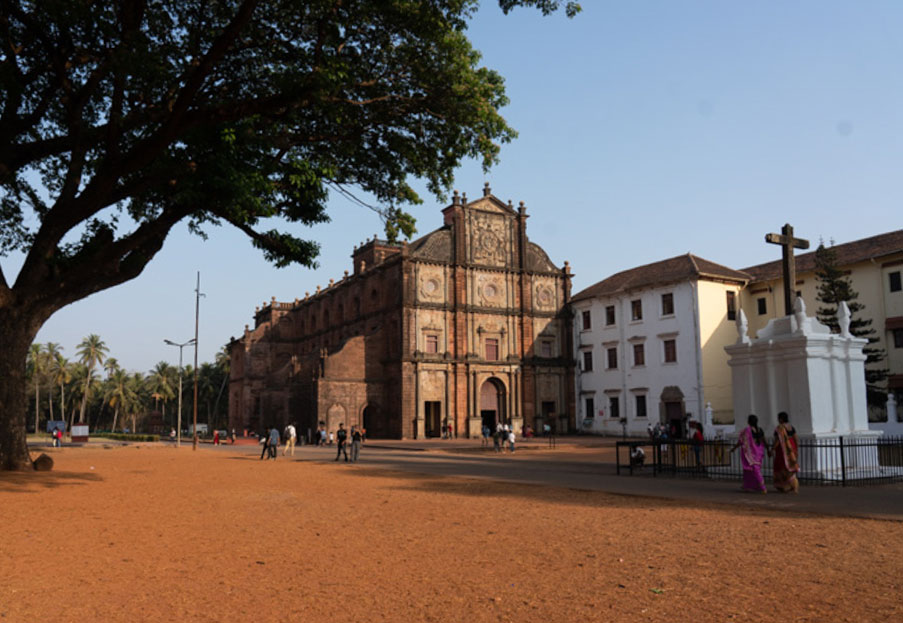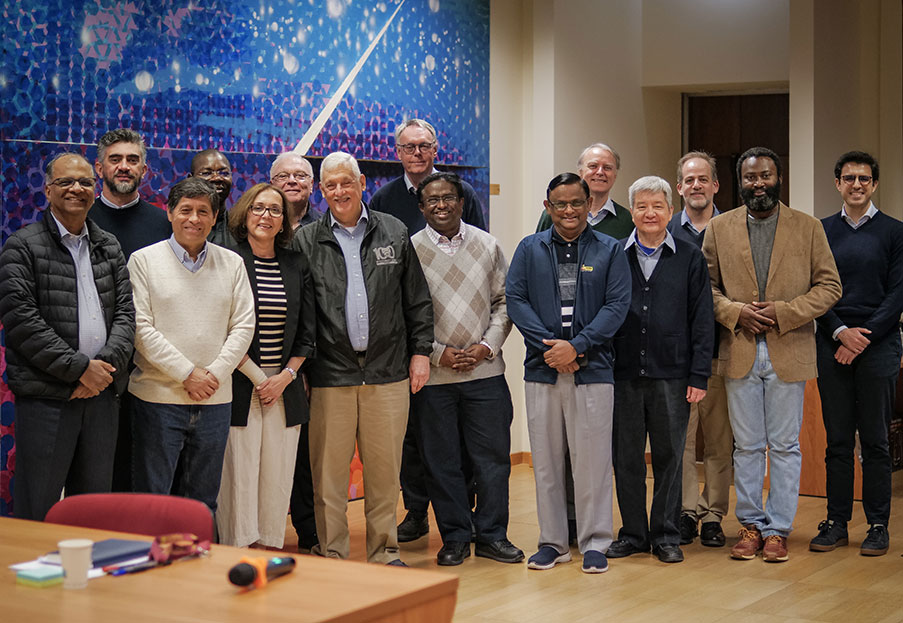A challenge: defending the weak, the poor, the excluded
A festive atmosphere awaited Father General in Gayaganga, a town near Bagdogra airport in the northern part of West Bengal where Jesuits have been serving one of the most impoverished populations in India for almost 70 years. The first Jesuit ministries were established in 1933 by a group of Belgian Jesuits who created pastoral and social ministries for a people who mostly made a meager living in the tea gardens. Today, in what has become the Darjeeling Province, the tea gardens still provide subsistence living for the decedents of that original community. However, the Jesuits have made quality education available to those families in the hopes of giving them the tools to rise out of poverty. Father Sosa sent a message of encouragement and hope to the hundreds of young people and adults who had come to meet him.
In the Jesuit parishes, schools and college of the Terai, the Jesuit educators and pastors, together with all the other priests, religious and lay collaborators, aim at creating a better tomorrow for the poor and the marginalized sections of society.

In today’s context, our mission of educating the younger generations has become a challenging exercise. The service of faith and the promotion of justice in a ministry of reconciliation are indispensable and integral parts of our mission as educators and pastors. Education and formation cannot be restricted to educational institutions only. Parishes and social centres like Human Life Development and Research Centre, (HLDRC) and Jesu Ashram (Hospice) Matigara, also play a crucial role in this mission educating the youth of today and tomorrow.
Therefore, I urge the educational institutions, the parishes and other social welfare and social action centers to promote actively healthy and progressive human communities based on moral, ethical and religious values. Both individually and collectively, you are also responsible in creating and establishing communities that protect religious pluralism and harmony, and communities that defend the rights of people. To achieve this all your educational institutions, the parishes and other centers of ministry must become centers of true spiritual discernment. Your tribal identity and culture are important aspects of your daily life and these need to be protected and promoted.

Justice is an equally important aspect of our education and faith formation. Every person is created in the image and likeness of God. We are acutely aware of the injustices perpetrated and perpetuated by various corrupt economic, political, social and cultural structures. In several areas, Tribals are grossly exploited and are deprived of natural justice. The world is increasingly polarized between the rich and the poor, the powerful and the weak, and along gender lines. People, especially the tribals and Dalits, who are displaced due to various reasons such as poverty and conflict of various kinds, cry out for justice. Our education and pastoral/social care must make us the voice of the voiceless millions.
I invite you to take this as a clarion call for our times and rise up to the challenges of defending the weak, the poor and the excluded in every walk of life. Therefore walking with the poor of the tea gardens in order to uplift them through education and through faith and character formation must assume primacy in your ministries. Let us educate people to act responsibly. The schools and the parishes need to help people develop critical minds that analyze situations, discern well and have strong, indomitable wills to act justly in faith.







